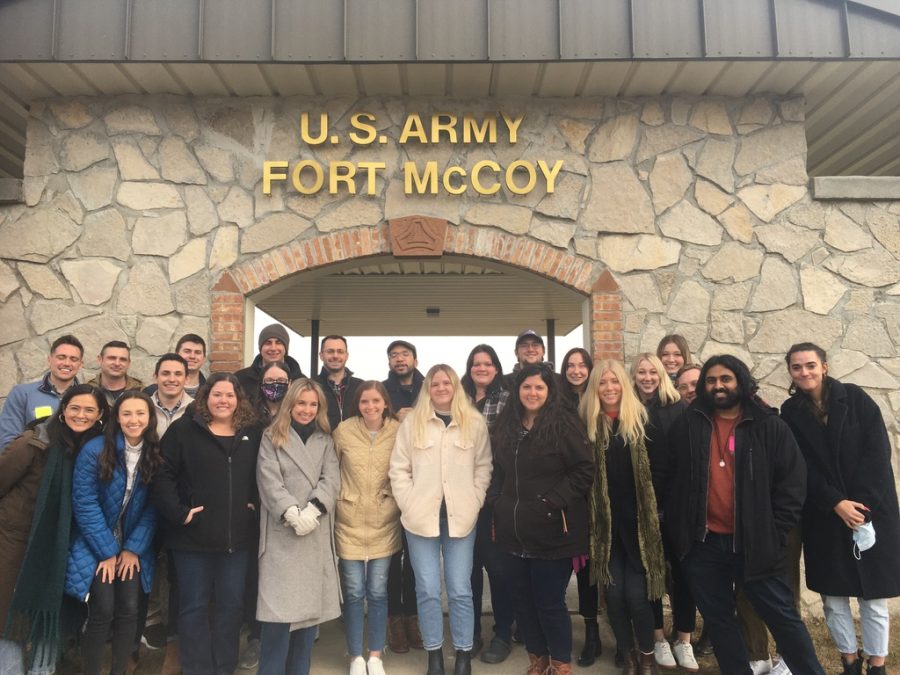Marquette University Law students and faculty traveled 150 miles northwest to Fort McCoy over winter break to provide pro bono legal services to Afghan refugees.
“I saw an opportunity to help people and welcome them into our country,” Abigail Aswege, a second-year student in the law school and one of 51 students who went to Fort McCoy, said. “They were facing some crazy life experiences and I wanted them to see some friendly faces when they were coming into a new country.”
During the U.S. military’s two-decade-long stay in Afghanistan, roughly 75,000 Afghan refugees arrived in the U.S. Since August 2021, when the U.S. military left Afghanistan, thousands still remain in U.S. military bases working to obtain asylum.
Asylum is a form of protection granted to individuals who can demonstrate that they are unable or unwilling to return to their country because of persecution or fear of persecution on account of race, religion, nationality, membership in a particular social group or political opinion.
“Marquette law students are no strangers to public service,” Angela Schultz, Marquette University Law School’s assistant dean for public service, said. “I knew this would be a unique opportunity to serve others impacted by a current humanitarian crisis.”
Ali Mahmood, a third-year student in the law school, said that once the opportunity presented itself, he knew he had to help.
“I’ve been keeping up with what’s been happening in Afghanistan and I knew that this was something where I wanted to help out where I could,” Mahmood said.
Volunteers assisted Afghan refugees at Fort McCoy with their asylum applications.
Applicants must complete the asylum application and submit three copies of supporting documentation, including passports, travel documents and identity documents. They must also include a marriage certificate if their spouse is included in the application and birth certificates for children under 21 included.
The application also requires three copies of any medical reports, evaluations or assessments and a passport-style photograph for everyone included in the application. Form G-28 (Notice of Entry of Appearance as Attorney or Representative) is required to be submitted as well and must be signed by both the applicant and the attorney or accredited representative.
The last part of the asylum application requests documentation of country conditions. While assisting with the application process, what stood out most to the volunteers was the different stories from every person they met.
“Every single story was just crazy powerful,” Aswege said. “Many of them could give me multiple instances of when they were threatened or harmed or exploited for money.”
Aswege said the experience was eye-opening for her as a woman in the U.S.
“Sometimes I forget how big of a blessing it is that I’m a woman pursuing higher education,” Aswege said. “The women in Afghanistan don’t have rights, they can’t leave the house without a man, none of them had any work experience and they had very little education, if at all.”
Mahmood said the hardest part was hearing the stories of people who hadn’t seen their family for a long time.
“There was this one individual whose entire family is still in Afghanistan and he came thinking that it would be an easy process for him to come into the country and try to bring his family over after he came here,” Mahmood said.
The asylum process can take anywhere from six months to several years.
“I felt helpless,” Mahmood said.
As of Jan. 21, more than 6,000 refugees still remain at Fort McCoy.
This story was written by Bailey Striepling. She can be reached at [email protected].

